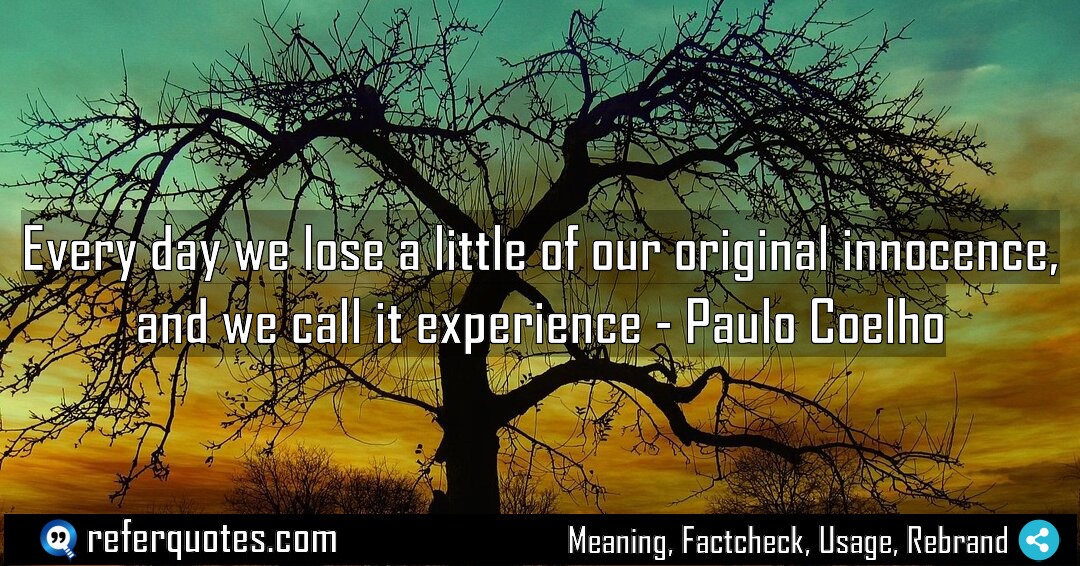Every day we lose a little of our original innocence, and we call it experience. It’s a powerful observation about how life’s hard knocks fundamentally change us, trading our wide-eyed wonder for a more seasoned, sometimes jaded, perspective.
Share Image Quote:Table of Contents
Meaning
At its core, this quote suggests that the wisdom we gain through life—what we call “experience”—is actually purchased with the currency of our innate purity and untarnished optimism.
Explanation
Look, it’s something I’ve seen play out a thousand times. That first time you get burned in a business deal, or your heart gets broken, or you realize not everyone has good intentions… that’s the moment. You lose a tiny piece of that original, unfiltered belief in a purely good world. And what’s left? A scar, sure, but also a lesson. That lesson is what we package up and proudly label “experience.” It’s not a bad thing, not entirely. It’s a necessary armor. But we have to be honest with ourselves that we’re building that armor piece by piece from the shattered bits of our earlier, more innocent selves. It’s the cost of doing business with life.
Quote Summary
| Context | Attributes |
|---|---|
| Original Language | Portuguese (369) |
| Category | Life (320) |
| Topics | experience (26), growth (413), innocence (2) |
| Literary Style | poetic (635) |
| Overall Quote Score | 86 (262) |
Origin & Factcheck
This one comes straight from Paulo Coelho’s 2008 novel, The Winner Stands Alone. It’s a modern take from a Brazilian author, focusing on the dark side of ambition and fame. You’ll sometimes see this sentiment, this idea, floating around misattributed to older poets or philosophers, but the specific phrasing is pure Coelho.
Attribution Summary
| Context | Attributes |
|---|---|
| Author | Paulo Coelho (368) |
| Source Type | Book (4032) |
| Source/Book Name | The Winner Stands Alone (55) |
| Origin Timeperiod | Contemporary (1615) |
| Original Language | Portuguese (369) |
| Authenticity | Verified (4032) |
Author Bio
Paulo Coelho(1947) is a world acclaimed novelist known for his writings which covers spirituality with underlying human emotion with a profound storytelling. His transformative pilgrimage along the Camino de Santiago inspired his breakthrough book, The Pilgrimage which is soon followed by The Alchemist< which went on to become the best seller. Through mystical narratives and introspective style, Paulo Coelho even today inspires millions of people who are seeking meaning and purpose in their life
Official Website |Facebook | Instagram | YouTube |
Where is this quotation located?
| Quotation | Every day we lose a little of our original innocence, and we call it experience |
| Book Details | Publication Year: 2008 (Brazil); ISBN: 978-0-06-175044-1; Latest Edition: Harper Perennial 2009; 368 pages. |
| Where is it? | Approximate page 61, Chapter: The Price of Experience |
